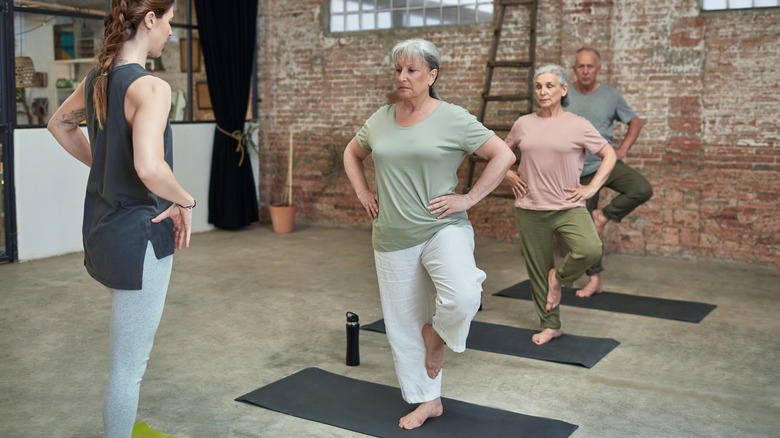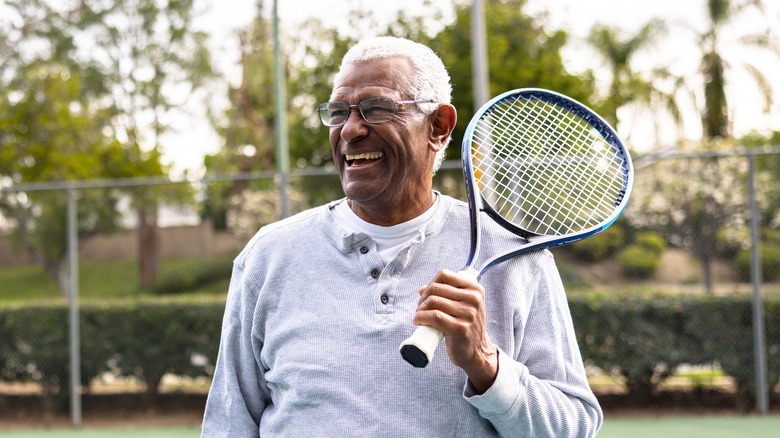An unfortunate and frustrating part of aging is losing some of the mental and physical abilities you had when you were in your 20s or 30s. You forget why you walked into the kitchen, and you can’t beat your 5K personal record from years ago. While some of these aren’t too concerning, signs of cognitive impairment can be more serious, and can include problems navigating in familiar surroundings, forgetting important appointments, or having difficulty following conversations (per WebMD).
Although these signs might be difficult to track over time, some physical tests can determine how well your brain is functioning. According to a 2024 article in Stroke, your ability to stand on one leg can not only give you an idea of your muscle strength and balance but also detect whether you have age-related damage to the small blood vessels in your brain. The standing one-leg test can also detect cognitive impairment.
The one-leg standing test

Without holding onto anything, how long can you stand on a single leg? Be sure to repeat with the opposite leg, because one might be stronger than the other. The 2024 article in Stroke found that people who couldn’t hold for longer than 20 seconds were more likely to have cerebral small-vessel disease, which occurs when the blood vessels in your brain become obstructed from inflammation or a buildup of plaques. The one-leg standing test was also associated with people who had mini-strokes, microbleeds in the brain, and impaired cognitive function.
The one-leg standing test is also an indicator of your longevity, according to a 2024 study in the British Journal of Sports Medicine. The researchers used the one-leg standing test for people aged 51 to 75, finding that 20% of them couldn’t stand on a single leg for 10 seconds. Those who couldn’t do the one-leg standing test for 10 seconds had an 84% higher risk of all-cause mortality than those who could stand successfully for 10 seconds. The study suggested the one-leg standing test is a good exam for people in middle age and older.
Improving your brain health with age

Your ability to stand on a single leg is an indirect measure of your brain health, meaning that your lifestyle plays a role in how well your brain ages. Physically active people are less likely to have subjective cognitive decline, according to a 2024 study in Preventive Medicine. Per the Centers for Disease Control and Prevention, you shoud aim for 150 minutes of moderate exercise each week, or 30 minutes five days a week. You don’t even need structured activities like aerobics classes. You can dance in your kitchen while cooking dinner or take your dog for longer walks every day. Rather than sit at your desk or your couch for long periods, get up and do some quick exercises like bodyweight squats. Other ways to add more activity could be parking further away from the store or taking stairs rather than using elevators.
You’ll also need strength training at least twice a week, so you can break it up into upper-body exercises one day and lower-body another. When you reach age 65, it’s a good idea to incorporate exercises that maintain your balance three days a week. Exercises like walking heel-to-toe, standing from sitting, or standing on an unstable surface such as a wobble board can work on your balance. Keeping your back, core, and legs strong also keeps your balance intact as you age.








